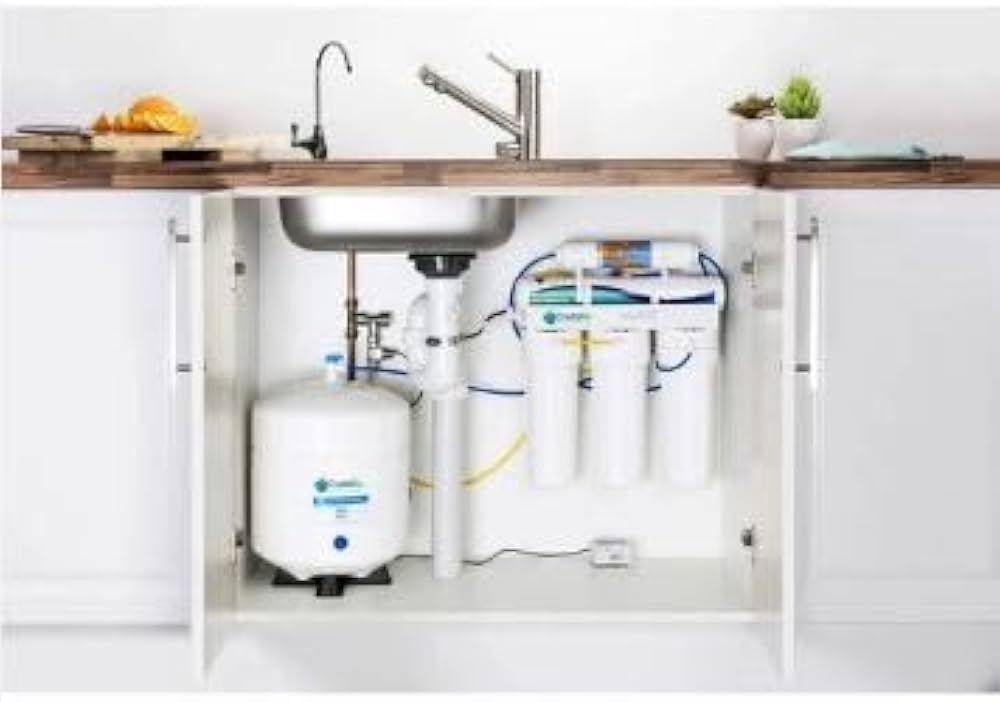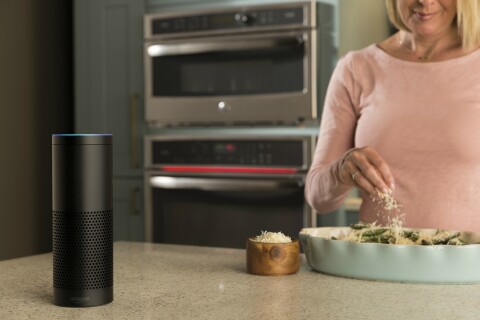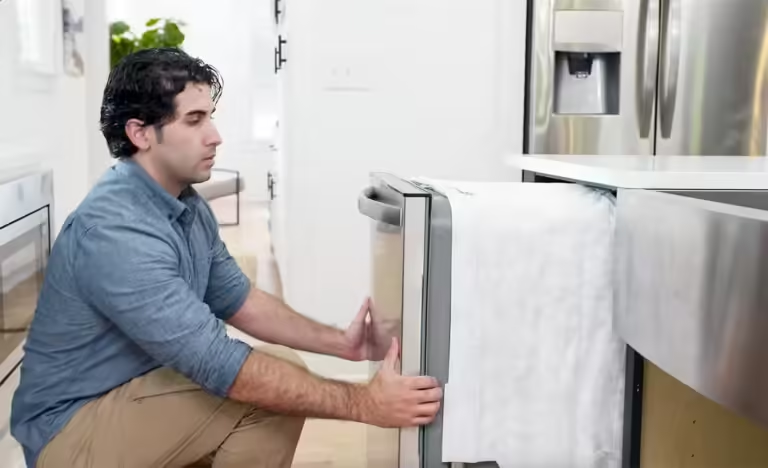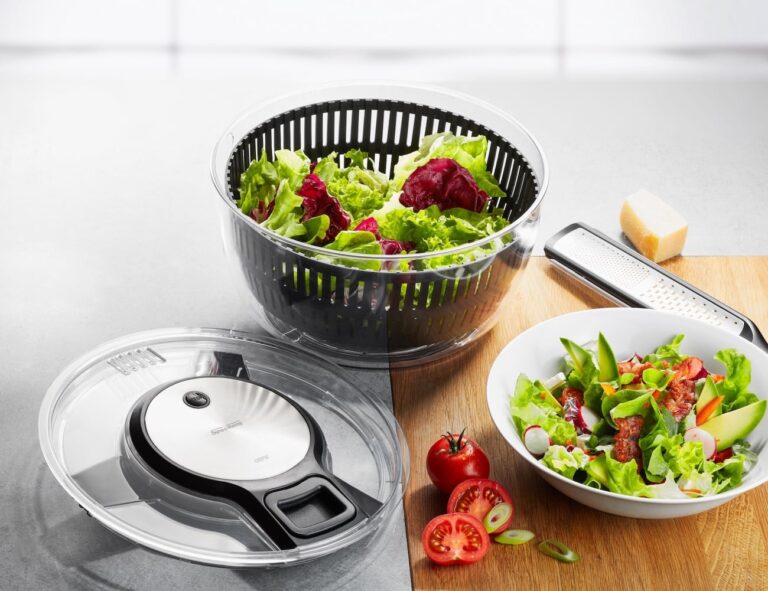Clean and safe drinking water is a fundamental need in every household, and the kitchen is at the heart of this necessity. Traditional water filtration systems have been widely used to remove impurities and improve water quality, but as technology advances, so does the need for more sophisticated solutions. Enter smart kitchen water filtration systems: the modern answer to ensuring optimal water quality with convenience and advanced technology. These systems are revolutionizing how we think about water filtration, integrating smart features that enhance functionality and user experience.
Overview of Water Filtration Systems
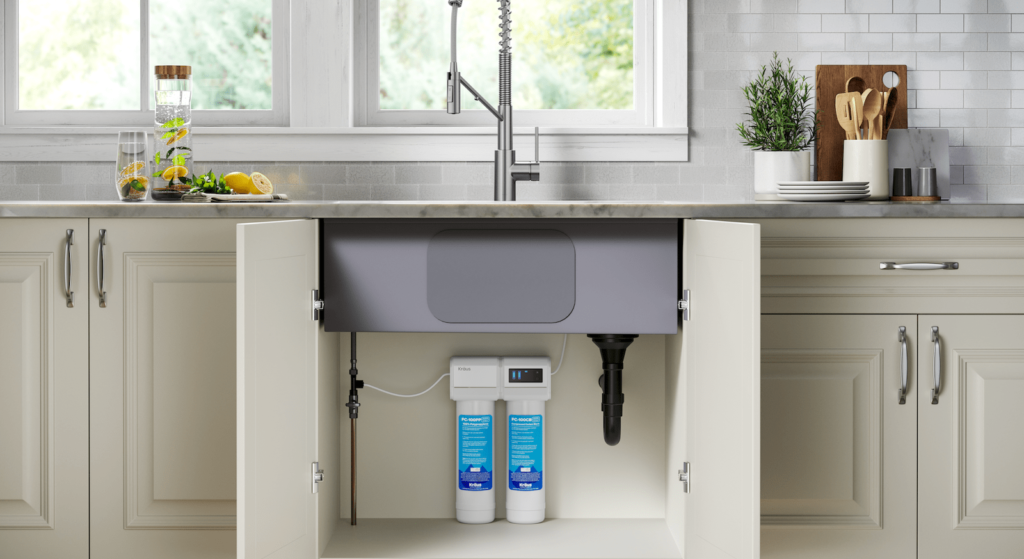
Water filtration systems have evolved significantly over the years, with traditional methods still playing a crucial role in many homes. Common conventional systems include activated carbon filters, reverse osmosis units, and UV purification systems.
Activated Carbon Filters use charcoal to absorb contaminants and impurities, making them effective for removing chlorine, sediment, and volatile organic compounds (VOCs). They are relatively inexpensive and easy to maintain, but they do not remove all types of contaminants, such as heavy metals or pathogens.
Reverse Osmosis Systems are more advanced, using a semi-permeable membrane to filter out a wide range of impurities, including dissolved solids, bacteria, and viruses. However, these systems can be slow and wasteful, as they typically discard a significant portion of water during the filtration process.
UV Purification relies on ultraviolet light to kill bacteria and viruses. While effective at disinfection, UV systems do not remove chemical contaminants or particulates.
Despite their effectiveness, these traditional methods have limitations. They often require manual monitoring and maintenance, lack connectivity with other smart home systems, and may not provide real-time data on water quality. This has paved the way for the development of smart kitchen water filtration systems, which offer more efficient and user-friendly solutions.
Features of Smart Kitchen Water Filtration Systems
Smart kitchen water filtration systems combine advanced filtration technology with smart home integration, providing users with enhanced control, monitoring, and maintenance capabilities. Here are some of the key features that set these systems apart:
Integration with Smart Home Ecosystems
Smart water filtration systems can be integrated into broader smart home ecosystems, allowing users to control and monitor the system through platforms like Amazon Alexa, Google Assistant, or Apple HomeKit. This integration enables voice control, scheduling, and automation, making it easier to manage water quality without manual intervention.
Real-time Water Quality Monitoring
One of the standout features of smart water filtration systems is real-time monitoring. Equipped with sensors, these systems continuously analyze water quality, detecting impurities, pH levels, and overall water composition. Users can access this data via mobile apps, providing them with insights into their water quality at any time.
Automated Filter Replacement Alerts
Gone are the days of guessing when to replace a filter. Smart filtration systems track filter usage and effectiveness, sending alerts to the user’s smartphone when it’s time to replace a filter. This feature not only ensures optimal water quality but also prolongs the lifespan of the system by preventing overuse of filters.
Mobile App Connectivity and Control
Smart water filtration systems are equipped with mobile apps that allow users to control the system remotely. Whether adjusting filtration settings, monitoring water usage, or ordering replacement filters, the app provides a user-friendly interface for managing all aspects of the filtration system.
Customizable Filtration Settings
Unlike traditional systems, smart water filters often allow users to customize their filtration settings based on their specific needs. For example, users can adjust the level of filtration to target specific contaminants, or set preferences for mineral retention to ensure that essential minerals remain in the water.
Types of Smart Water Filtration Systems
There are several types of smart water filtration systems available, each designed to meet different needs and preferences:
Under-sink Filtration Units
These systems are installed directly under the kitchen sink, providing filtered water through a separate faucet. Under-sink units are discreet and save counter space, making them a popular choice for many households. Smart features include leak detection, filter life monitoring, and integration with smart home systems for enhanced control.
Countertop Filters
Countertop smart filters are portable units that sit on the kitchen counter and connect to the faucet. They are easy to install and do not require permanent alterations to the plumbing. These systems are ideal for renters or those who prefer a simpler setup. They offer real-time monitoring and app connectivity, making them convenient and accessible.
Smart Faucets with Integrated Filtration
Smart faucets with integrated filtration systems combine the convenience of a regular kitchen faucet with advanced filtration capabilities. These faucets typically feature touchless controls, temperature settings, and real-time water quality displays. They are an excellent choice for those looking to integrate filtration seamlessly into their kitchen design.
Whole House Smart Filtration Systems
For comprehensive water filtration, whole-house smart systems provide filtered water throughout the entire home. These systems are ideal for households concerned about water quality not just in the kitchen but in showers, laundry, and other water outlets. They are equipped with advanced monitoring and control features that can be accessed via smart home platforms.
Technology Behind Smart Filtration Systems
Smart kitchen water filtration systems are powered by a range of technologies that enhance their functionality and performance:
Sensors for Water Quality Detection
Sensors play a critical role in smart filtration systems, continuously monitoring various parameters such as turbidity, pH levels, temperature, and the presence of specific contaminants. These sensors provide real-time data, allowing the system to adjust filtration processes as needed and alert users to any issues.
IoT and Connectivity Features
The Internet of Things (IoT) is a key component of smart water filtration systems. By connecting to the internet, these systems can send data to mobile apps, receive software updates, and integrate with other smart home devices. This connectivity ensures that the system is always up-to-date and functioning optimally.
AI and Machine Learning for System Optimization
Some smart filtration systems incorporate artificial intelligence (AI) and machine learning algorithms to optimize performance. These technologies can analyze usage patterns, predict maintenance needs, and adjust filtration settings based on the specific contaminants present in the water. This leads to more efficient operation and better water quality.
Smart Valves and Flow Control Mechanisms
Smart valves and flow control mechanisms are used to regulate water pressure and flow within the filtration system. These components help maintain consistent water quality and prevent issues such as low pressure or uneven filtration. They can be controlled remotely via mobile apps, adding another layer of convenience.
Benefits of Smart Kitchen Water Filtration Systems
Smart kitchen water filtration systems offer numerous benefits that make them an attractive option for modern households:
Improved Water Quality and Safety
By providing real-time monitoring and advanced filtration capabilities, smart systems ensure that water quality remains consistently high. This is particularly important in areas with variable water quality or specific contamination concerns.
Convenience and Ease of Maintenance
The integration of automated alerts and remote control features simplifies maintenance, making it easier for users to keep their systems in optimal condition. This reduces the likelihood of drinking contaminated water due to neglected filter replacements or system malfunctions.
Environmental and Cost Benefits
Smart water filtration systems can lead to cost savings by reducing the need for bottled water and minimizing waste. Additionally, many smart systems are designed to be more water-efficient than traditional methods, helping to conserve water and reduce environmental impact.
Enhanced User Experience
From customizable filtration settings to the convenience of mobile app control, smart systems offer a superior user experience. The ability to tailor the system to specific needs and preferences adds value and makes managing water quality a seamless part of daily life.
Challenges and Considerations
While smart kitchen water filtration systems offer numerous advantages, there are also challenges and considerations to keep in mind:
Initial Cost and Installation Complexity
Smart water filtration systems tend to be more expensive than traditional options, both in terms of initial cost and installation. Professional installation may be required, especially for under-sink or whole-house systems, which can add to the overall expense.
Data Privacy and Security Concerns
As with any connected device, smart water filtration systems pose potential data privacy and security risks. Users should ensure that their systems are protected by strong passwords and are aware of the data being collected and how it is used.
Dependence on Technology and Power Supply
Smart systems rely on technology and power to operate, which can be a drawback in the event of power outages or technical malfunctions. While many systems are designed with backup options, it’s important to consider how these scenarios might impact water availability.
Potential Limitations in Filter Performance
Although smart systems offer advanced features, the core filtration capabilities still depend on the filters used. Users should research and select systems with high-quality filters that are proven to address their specific water quality concerns.
Market Trends and Future Developments
The market for smart kitchen water filtration systems is growing rapidly, driven by increasing consumer demand for convenience, safety, and connectivity in home appliances. Key players in the market include established brands as well as innovative startups, all vying to offer the most advanced and user-friendly products.
Emerging Trends in Smart Water Filtration
Emerging trends in the market include the development of more compact and portable filtration units, enhanced AI-driven optimization, and increased focus on sustainability. Innovations such as self-cleaning filters and systems that can be powered by renewable energy sources are also on the horizon.
Predictions for Market Growth and Adoption
As smart home technology continues to gain traction, the adoption of smart water filtration systems is expected to increase. Market analysts predict significant growth in the coming years, particularly in regions where water quality is a major concern or where smart home adoption is already high.
Conclusion
Smart kitchen water filtration systems represent a significant advancement in home water treatment, combining the latest technology with essential filtration capabilities. These
systems not only improve water quality but also provide users with unprecedented control, convenience, and insight into their water usage. As these systems continue to evolve, they are poised to become a standard feature in modern kitchens, offering a healthier and more sustainable solution for households worldwide.
The future of smart kitchen water filtration looks promising, with continued innovations likely to address current limitations and expand the benefits even further. As consumers become more aware of the importance of water quality and the potential of smart technology, the adoption of these systems is expected to grow, contributing to healthier lifestyles and more efficient water usage in homes.

